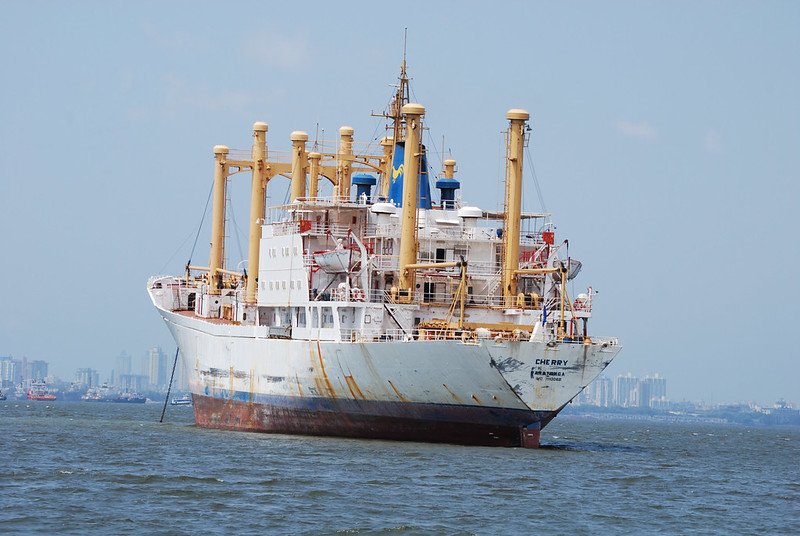Bring trade and climate action agendas together as part of COVID-19 recovery – UNCTAD host

“We must not waste a good crisis” but take this moment of pandemic recovery to examine how environmental sustainability and urgent climate action can be merged with the global trade agenda Ambassador Chad Blackman of Barbados has urged, in an event on 22 September 2020.
At the ODI-hosted event, ‘Charting new paths for climate and trade’, Ambassador Blackman said that emergency health needs created by the pandemic had created some negative environmental effects: such as the increased trade, use and disposal of plastic items.
However, economic stimulus and recovery packages , by contrast, provide a chance to reorientate economies to a far more environmentally sustainable path: “COVID19 has provided us with the most unique opportunity and time to really drive the agenda on sustainability. How do we build a global economy that is sustainable?”
Global forum needed to drive eco-friendly trade
Barbados will host the United Nations Trade and Development 15th Conference (UNCTAD15) in April 2021. In this role, Ambassador Blackman said, he is committed to addressing climate change, environment and trade links.
The UN’s Emissions Gap Report says that global society needs to increase climate change mitigation efforts by a factor of three to cap global warming at 1.5 degrees Celsius, noted Jodie Keane, a trade expert at ODI. This puts the scale of the global climate challenge into perspective.
Meanwhile, global economic crisis in the wake of the COVID-19 pandemic has led to “increasing demand for subsidies and is likely to increase trade tensions”, creating a hefty task list for the incoming WTO Director General, Dr Keane added.
A role for the UNFCCC on trade?
“There has to be a framework , an inter-organisational structure to unpack some of these efforts,” argued Ambassador Blackman – and it cannot be solely the World Trade Organization (WTO), which has no mechanism to impose sanctions on rule-breakers.
Dr Keane agreed that multilateral action far beyond the WTO – and possibly stretching into and involving the UNFCCC – may be warranted to ensure that global trade systems and rules drive emissions reductions.
Both speakers highlighted that COP26 and its associated processes could create an opportunity for driving emissions reductions and transparency around emissions in traded goods.
This could include discussion of Border Carbon Adjustments, a measure actively under review by the European Union at present, which is the carbon-related taxation of imported goods from non-carbon-taxing countries.
However, Border Carbon Adjustments are only one piece of the puzzle. “Discussion around Border Carbon Adjustments avoids a lot of the important issues such as nature-based solutions, adaptation and resilience,” Dr Keane said.
Sonam P Wangdi of Bhutan, Chair of the Least Developed Countries (LDCs) Group in the UNFCCC negotiations, cautioned that any border taxes would need to be scrutinised carefully to ensure they did not penalise LDCs, who are already disadvantaged in the global trade system.
Accelerated climate ambition by multinational businesses could bolster efforts to align trade with environmental sustainability – according to Archie Young, Lead Climate Negotiator for the UK.
Mr Young said that a few years ago “it seemed that governments were going further (on climate ambition) and trying to bring businesses with them” but now that position has almost reversed – and many businesses are on the front foot. The We Mean Business coalition of companies dedicated to climate action now covers one quarter of global GDP. “We should celebrate that and what business and what private investment can do if we align financial flows and if global supply chains encourage more sustainability across the world.”
No single global institution or structure currently exists to address the plethora of opportunities for trade systems to become environmentally sustainable. “There have to be globally well oiled and coordinated mechanisms to deal with climate change and its impacts” – Ambassador Blackman concluded. “Perhaps you divide up the tasks among institutions and in this respect, COP26 is an opportunity.”
Watch the full event video on youtube: ‘Charting new paths for climate and trade’ hosted by Sarah Colenbrander, Director of Climate and Sustainability, ODI.
This article was written by Mairi Dupar, ODI, of the Climate Ambition Support Alliance (CASA).